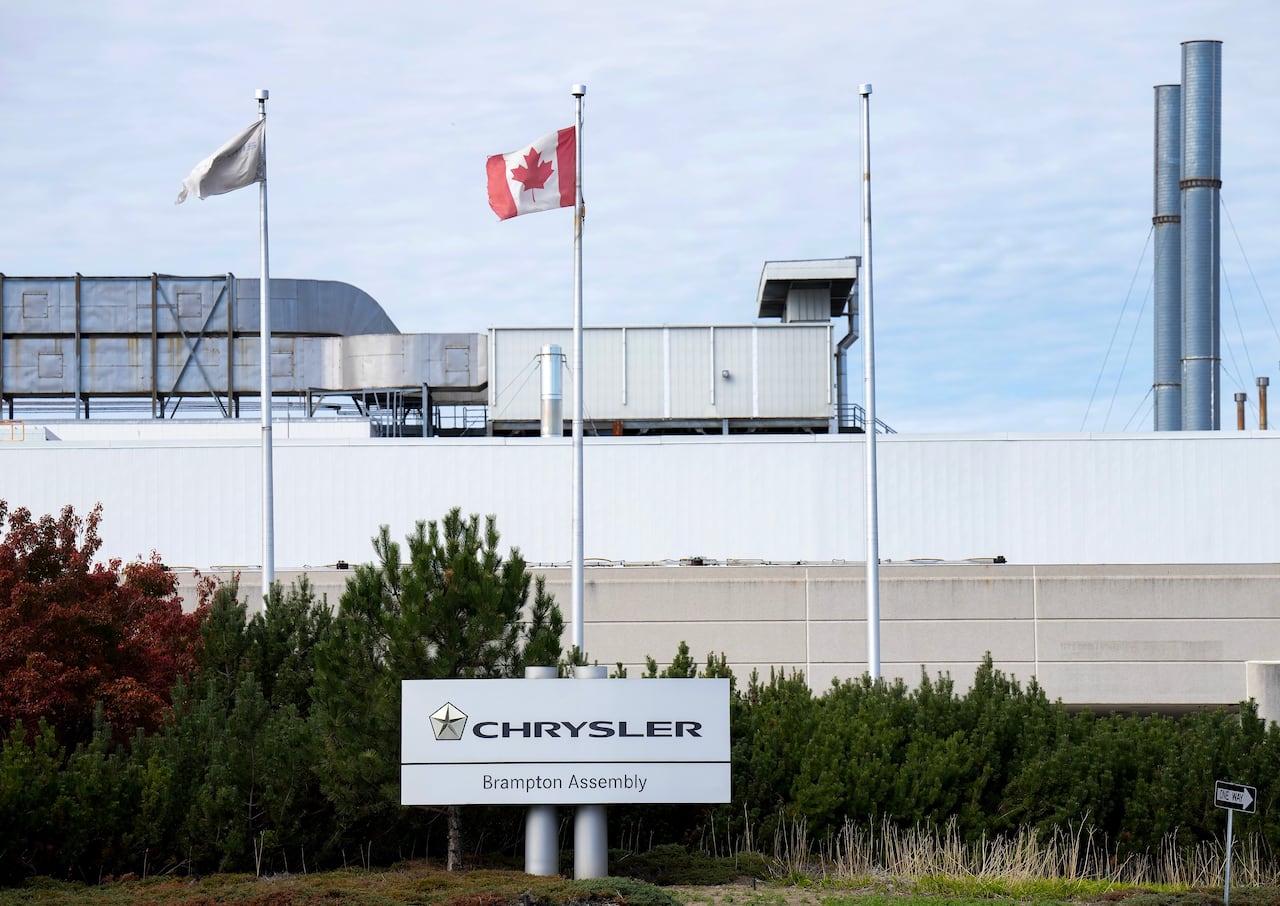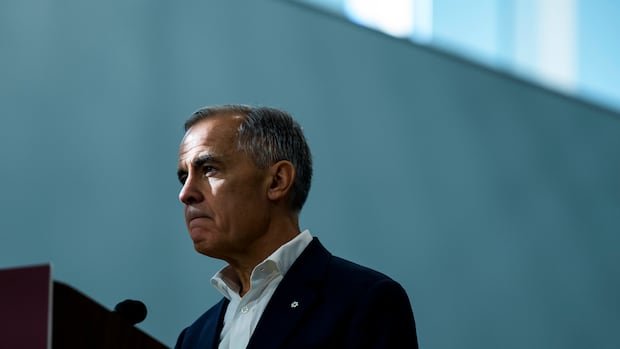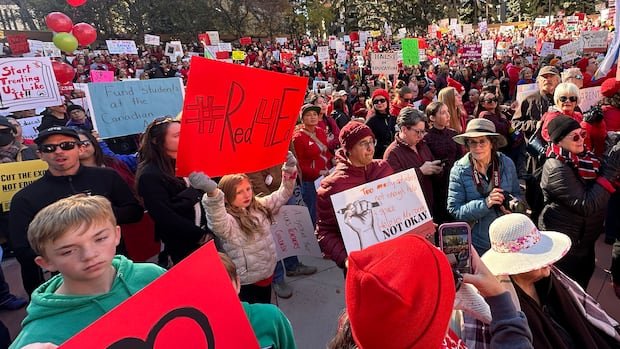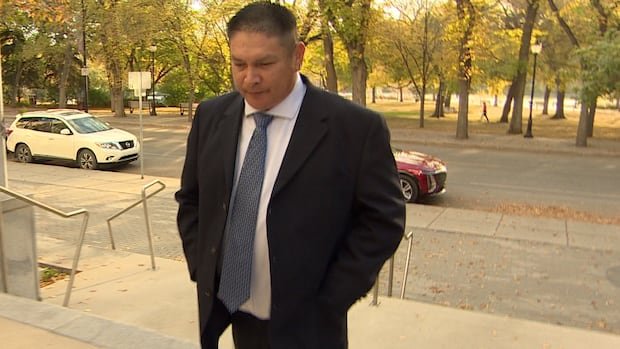Prime Minister Mark Carney said Thursday that his government is not considering more retaliatory tariffs on American goods, even as the trade war continues, because there are signs that bilateral aid talks are headed in the right direction.
Carney faces pressure from some premiers, such as Doug Ford of Ontario, and unions to confront U.S. President Donald Trump as he raises tariffs on critical sectors, taxes that have driven jobs and investment away from Canada.
His comments come days after Stellantis announced it would produce its Jeep Compass in Illinois, rather than at the automaker’s plant in Brampton, Ontario, a decision the prime minister called “a direct consequence” of U.S. trade actions.
Ford, who will meet with Carney later on Thursday, offered a message to the prime minister: “If we can’t reach a deal, let’s start responding strongly to the United States.”
“We’re nice, nice, nice. He plays well in the sandbox,” Ford told reporters. “I’m sick and tired of sitting around and turning around. We need to fight back.”
But Carney said now is not the time for that, as Canadian and U.S. officials are locked in negotiations.
“There’s a time to strike back and there’s a time to talk. And right now is the time to talk,” Carney told reporters in an unrelated announcement about the crime. “We are having intense negotiations.”
Canada-U.S. Trade Minister Dominic LeBlanc is back in Washington (after a break in talks over the Thanksgiving weekend) to meet with senior U.S. officials. Michael Sabia, the secretary of the Privy Council, Canada’s top bureaucrat, is also in DC as the two sides try to reach a deal.
Carney said he would update Ford on the progress of those talks, which have focused on the steel, aluminum and energy sectors, including a possible revival of the Keystone XL pipeline.
U.S. Commerce Secretary Howard Lutnick, Trump’s tariff czar, has said any potential trade deal will not involve removing tariffs on Canadian cars, comments that have sparked anxiety in Ontario and demands from Ford that Canada take a tougher line with the Americans.
In August, Carney removed most of the retaliatory tariffs that former Prime Minister Justin Trudeau had placed on American goods, in an attempt to boost talks with Trump to get U.S. taxes lifted and preserve Canada’s relatively good position.
While the so-called Section 232 tariffs on steel, aluminum, lumber and automobiles have been particularly punitive, most other Canadian products continue to be traded in the United States tariff-free. Carney has so far maintained tariffs on most U.S. imports of steel, aluminum and certain automobiles as he waits to reach a deal.
Prime Minister Mark Carney says Canada will not impose retaliatory tariffs on the United States and says the government is engaged in “deep negotiations” over several key Canadian industries, including the automotive, timber, steel and aluminum sectors.
As for the idled Brampton plant, one of the first major Canadian casualties of Trump’s campaign to return auto manufacturing to the United States, Carney said he spoke with Stellantis CEO Antonio Filosa and expressed Canada’s “disappointment” that the automaker is moving some production from Ontario to Illinois.
Stellantis, the parent company of brands including Chrysler, Dodge, Jeep and Ram, said Wednesday that it may eventually move another model to the Brampton plant, which employed about 3,000 people and produced about 200,000 vehicles before it closed in 2023 for redevelopment, plans the company has now shelved in the current business environment.
Carney said Filosa told him that the decision on which model could eventually replace the Compass depends on the outcome of the renegotiation of the Canada-United States-Mexico Agreement (CUSMA) that will begin next year, a process that will likely include reviewing the auto component, given Trump’s obsession with boosting U.S. auto manufacturing.
Meanwhile, Carney said some laid-off Brampton auto workers may move to the company’s Windsor plant, which is adding a third shift to increase production of Chrysler Pacifica minivans, among other products.
Carney said the government expects the company to offer retraining support to affected workers.

Unifor, the union representing Stellantis auto workers, said the offer to transfer Brampton employees to the Windsor plant is little consolation.
“In 2023, negotiating with Unifor, Stellantis’ product and investment commitment plan included restoring three-shift operations at the Windsor and Brampton assembly plants,” said Lana Payne, Unifor national president.
“Even with three shifts in Windsor, Stellantis has only met half of its product and investment commitment plan. Providing long-awaited jobs in Windsor, while eliminating jobs in Brampton, does not balance the scales; it still represents a net loss for Canadian auto workers,” he said.
- This Sunday, Cross Country Checkup asks: How is the trade war affecting your livelihood? Are you worried about your job security? Fill this form and you could appear on the show or have your comment read on air.
While touring a Chrysler dealership in Sault Ste. Marie, Ontario, Conservative Leader Pierre Poilievre called Stellantis’ decision to cut production in Brampton “terrible news” and blamed the prime minister for the event.
“Mark Carney has broken his promise to negotiate a victory. We were supposed to already have a deal: no deal, no win, no elbows, no jobs. Canadians are paying the cost for Carney. His broken promises are costing Canadians their jobs,” he said.
Lana Payne, national president of Unifor, says Stellantis is moving production of the Jeep Compass from its Brampton, Ontario, plant to the United States as a result of President Donald Trump’s trade war. And the automotive sector will not be the only industry affected. “They will continue to come until we weaken as a nation,” he said.
Poilievre urged the government to abandon the upcoming electric vehicle mandate, a policy Carney already suspended after auto companies said the last Liberal government’s ambitious sales targets were unrealistic.
Poilievre is also launching a new policy to stimulate auto manufacturing in the country: eliminating the GST on vehicles made in Canada.









